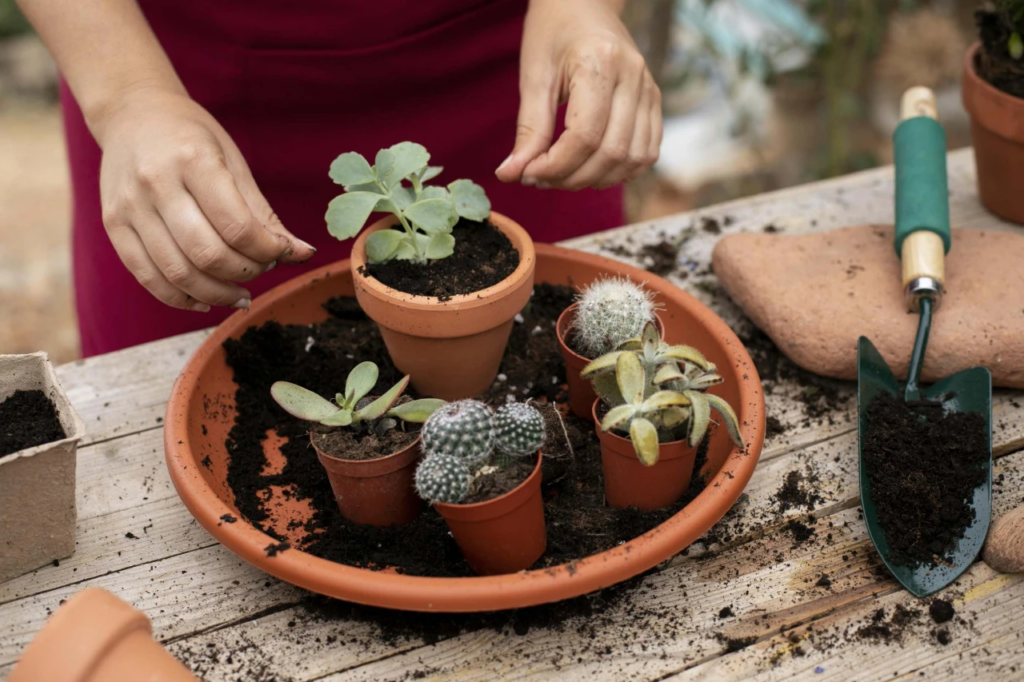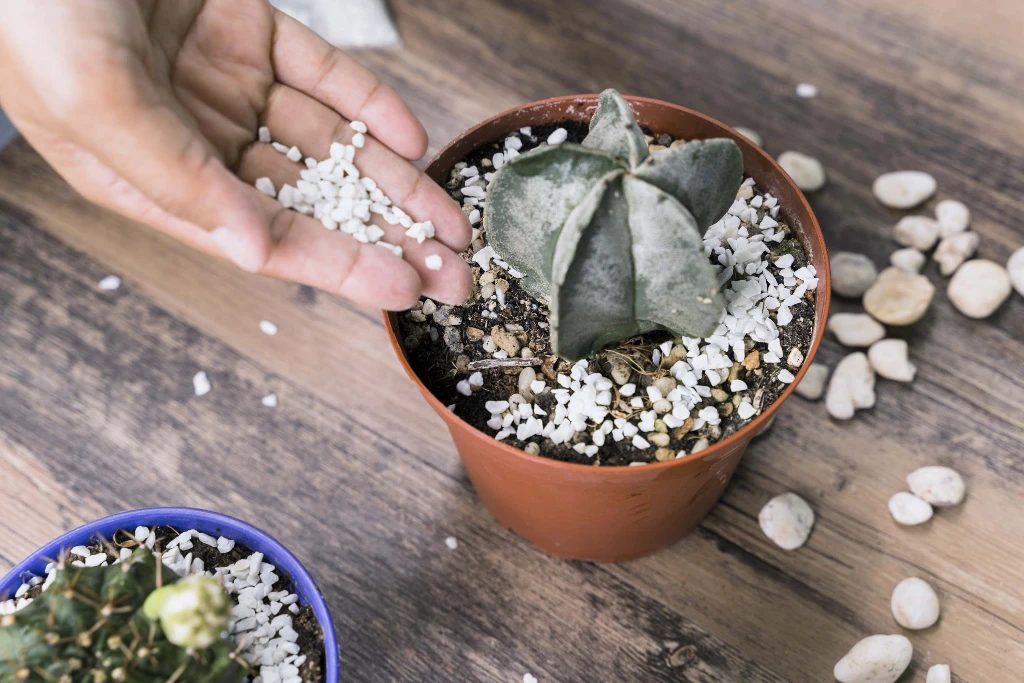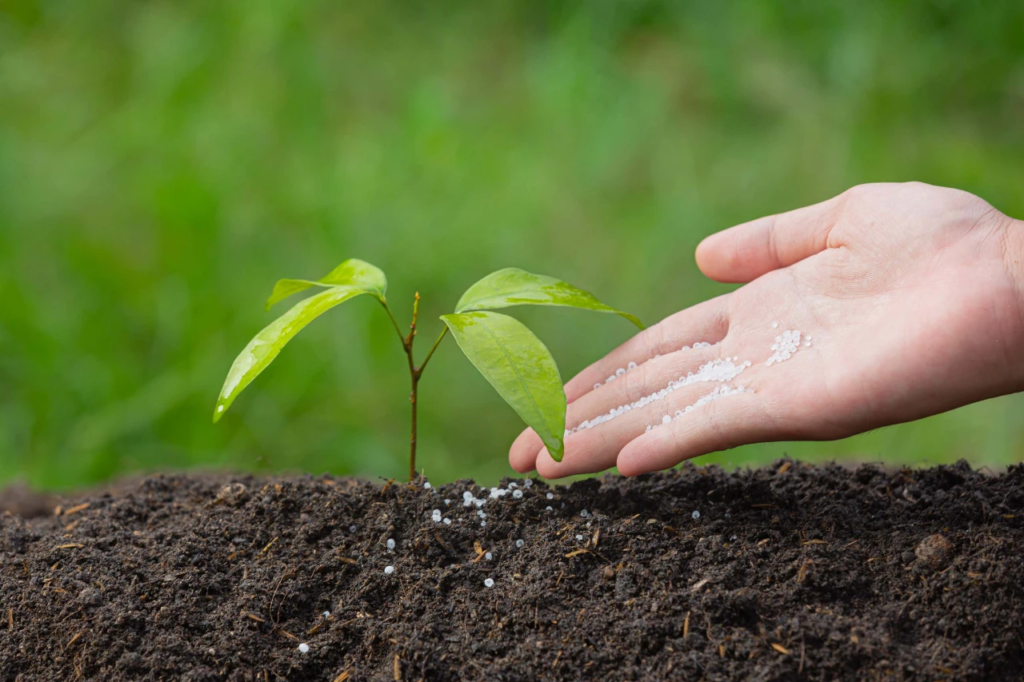
introduction
Succulents have gained immense popularity as indoor and outdoor plants due to their unique appearance and ability to thrive in arid conditions. As a responsible plant owner, you might be wondering if you can use succulent fertilizer on your other beloved plant companions. In this article, we will delve into the world of succulent fertilizers, explore their specific requirements, and discuss whether they can be safely used on other plants.
While succulent fertilizer is designed specifically for the unique needs of succulents, it may not be suitable for other plants. Succulents have evolved to thrive in low-nutrient environments, making them more tolerant of concentrated fertilizer solutions. Using succulent fertilizer on other plants, especially those with different nutrient requirements, can potentially harm them.
Before using succulent fertilizer on other plants, consider factors such as the plant’s nutrient needs, growth habits, and soil conditions. Non-succulent plants often require different nutrient ratios and may be more sensitive to excess nutrients, which can lead to nutrient imbalances or even toxicity.
Understanding Succulent Fertilizer
Succulent fertilizer is specifically formulated to meet the nutritional needs of these water-storing plants. It contains a balanced blend of essential nutrients, such as nitrogen (N), phosphorus (P), and potassium (K), along with trace elements like iron, manganese, and zinc. These nutrients are crucial for the healthy growth and development of succulents.
Components of Succulent Fertilizers:
- Nitrogen (N): Nitrogen is a crucial nutrient required for promoting leaf and stem growth in plants. Succulent fertilizers contain nitrogen in balanced amounts to support the moderate growth rate of succulents. However, the high nitrogen content in succulent fertilizers might not be suitable for other plant varieties that require different nitrogen ratios for optimal growth.
- Phosphorus (P): Phosphorus is essential for promoting root development and flowering in plants. Succulent fertilizers usually contain a moderate amount of phosphorus to support the establishment of strong root systems in succulents. However, excessive phosphorus levels in these fertilizers may lead to nutrient imbalances when used on non-succulent plants.
- Potassium (K): Potassium is responsible for various functions in plants, including photosynthesis, disease resistance, and water regulation. Succulent fertilizers contain potassium to support the water-storing capacity and overall health of succulents. While other plants also require potassium, the concentration in succulent fertilizers may not be suitable for their specific needs.
NPK Ratio and Succulent Fertilizer
The NPK ratio, which represents the relative amounts of nitrogen, phosphorus, and potassium in a fertilizer, plays a vital role in succulent care. For most succulents, a fertilizer with an NPK ratio of 2:1:1 or 3:1:2 works best. This balanced ratio ensures proper growth without promoting excessive leaf growth or susceptibility to diseases.
The Difference in Nutritional Requirements
Each plant species has its own specific nutritional requirements, and while succulents thrive on a low-nitrogen fertilizer, other plants may have different needs. Using succulent fertilizer on other plants may result in an imbalance of nutrients, potentially leading to adverse effects on their growth.
The Importance of Macronutrients
Macronutrients play a vital role in plant development, and the ratios required can vary between different species. For instance, succulents require a fertilizer with a lower nitrogen content to prevent excessive leaf growth. On the other hand, leafy greens and vegetables generally benefit from higher nitrogen levels to support lush foliage and robust growth.
Micronutrients and Their Impact
In addition to macronutrients, plants also require essential micronutrients for healthy development. Succulent fertilizers are typically formulated to provide the necessary micronutrients for succulent plants, such as iron, manganese, and zinc. However, other plants may have specific micronutrient requirements that differ from those of succulents.
Understanding Plant Types and Their Needs
To determine whether succulent fertilizer is suitable for other plants, it is crucial to consider the specific needs of each plant type. Let’s take a look at some common plant categories and their fertilizer requirements:
- Flowering Plants: Flowering plants often benefit from a fertilizer with higher phosphorus content to promote robust blooming. Succulent fertilizer, designed for low phosphorus levels, may not provide the necessary nutrients for optimal flowering in these plants.
- Leafy Greens: Leafy greens, such as lettuce and spinach, thrive on higher nitrogen levels. Succulent fertilizer, with its lower nitrogen content, may not meet the nutritional requirements of these plants, resulting in reduced growth and nutrient deficiencies.
- Fruit-Bearing Plants: Fruiting plants, such as tomatoes and peppers, require a balanced fertilizer that provides adequate levels of nitrogen, phosphorus, and potassium. Succulent fertilizer, tailored for low nitrogen levels, may not be the best choice for these plants.
Using Succulent Fertilizers on Non-Succulent Plants:

the usage of Succulent Fertilizers on Non-Succulent flora:while succulent fertilizers are specifically formulated for succulent plants, they may be used on non-succulent flowers with warning. right here are a few concerns to preserve in thoughts:
- Dilution: If you make a decision to use succulent fertilizer on non-succulent plant life, it’s far essential to dilute the fertilizer in line with the commands furnished. Diluting the fertilizer can help minimize the risk of nutrient imbalances and potential damage to non-succulent plants.
- Nutrient Requirements: Different plants have varying nutrient requirements. Before using succulent fertilizer on non-succulent plants, it is crucial to understand their specific needs. Research the optimal nutrient ratios and adjust the application of succulent fertilizer accordingly.
- Observing Plant Response: Monitor the plants closely after applying succulent fertilizer. Look for signs of nutrient deficiencies or excesses, such as yellowing leaves, stunted growth, or wilting. If any negative effects are observed, discontinue the use of succulent fertilizer on non-succulent plants.
Compatibility of Succulent Fertilizer with Other Plants
While succulent fertilizer is specifically designed for these plants, it can also be used on other plant species. However, it’s important to note that the nutrient requirements of different plants vary. Succulent fertilizer may not provide the ideal balance of nutrients for non-succulent plants, which can result in suboptimal growth or even damage to the plants. It is generally recommended to use fertilizers specifically formulated for the particular plant species you are growing.
options to Succulent Fertilizer for Non-Succulent vegetation

For non-succulent plant life, there are various opportunity fertilizers to be had within the marketplace. these fertilizers are in particular designed to satisfy the nutritional needs of various plants, including flora, greens, and indoor foliage. a few not unusual options to succulent fertilizer encompass slow-launch granular fertilizers, liquid fertilizers, and natural options like compost or manure. it’s miles vital to choose a fertilizer that suits the particular requirements of your flora for most fulfilling increase and health.
Fertilizing Indoor flowers: hints and guidelines
Indoor flora frequently have distinctive fertilizer necessities compared to out of doors flowers. factors inclusive of lower mild stages, restricted root area, and specific growth charges affect the fertilizer needs of indoor plants. whilst fertilizing indoor plants, it’s far vital to apply a balanced fertilizer with the perfect nutrient ratios. moreover, it’s beneficial to dilute the fertilizer to half-strength to avoid over-fertilization, which could damage the sensitive roots of indoor plant life.
choosing the right Fertilizer for out of doors plants

out of doors flowers, consisting of flowering flowers, shrubs, and timber, benefit from normal fertilization. the selection of fertilizer relies upon at the unique sort of plant and its boom degree. gradual-launch granular fertilizers are often preferred for out of doors flowers as they offer a consistent deliver of vitamins over an prolonged length. it’s important to follow the instructions supplied by way of the producer and regulate the application fee primarily based on the scale and age of the plant.
How to Create a Fertilizer Schedule for Different Plants
Creating a fertilizer schedule is essential to provide plants with the right nutrients at the right time. Factors such as plant type, growth stage, soil conditions, and climate influence the frequency and timing of fertilizer application. By considering these factors and following general guidelines for different plant groups, gardeners can create a customized fertilizer schedule. Regular monitoring of plant health and adjusting the fertilizer program accordingly is key to maintaining thriving and vibrant plants.
Best Practices for Fertilizing Flowering Plants
Flowering plants require specific care and attention when it comes to fertilization. To promote robust blooming, it’s crucial to use a fertilizer that is higher in phosphorus, the nutrient responsible for flower development. Applying a bloom booster fertilizer before the flowering season can enhance the plant’s ability to produce vibrant and abundant blooms. However, it’s important to avoid over-fertilization, as excessive nitrogen can lead to excessive leaf growth at the expense of flowers.
The Impact of Succulent Fertilizer on Vegetable Gardens
Vegetable gardens have distinct nutritional requirements to support healthy growth and high yields. While succulent fertilizer can be used on vegetable plants, it may not provide the ideal nutrient ratios required for optimal vegetable production. In vegetable gardens, it is advisable to use fertilizers specifically formulated for edible plants. These fertilizers contain higher levels of potassium and phosphorus, which are essential for fruit and vegetable development.
Using Organic Fertilizers for Edible Plants
Organic fertilizers are gaining popularity among gardeners due to their environmentally friendly nature and ability to improve soil health. When it comes to edible plants, organic fertilizers offer an excellent alternative to synthetic fertilizers. Compost, worm castings, and well-rotted manure are rich in organic matter and provide a slow-release source of nutrients. Organic fertilizers improve soil structure, enhance water retention, and promote beneficial microbial activity in the soil.
commonplace mistakes to keep away from whilst Fertilizing flora
Fertilizing plants requires careful consideration to make certain most advantageous results. There are numerous commonplace errors that gardeners need to avoid to save you damage to their flowers. those mistakes include over-fertilizing, underneath-fertilizing, applying fertilizer to dry soil, and no longer adjusting the fertilizer application prices based totally on the plant’s boom level. through expertise and avoiding those common pitfalls, gardeners can make certain the proper and green use of fertilizers.
conclusion
In end, even as succulent fertilizer is especially formulated for the precise needs of succulent plants, it may no longer be suitable for other plant species. every type of plant has its very own dietary requirements, and using the wrong fertilizer can result in imbalances and avert their growth. it’s far continually nice to select a fertilizer tailor-made to the particular needs of the flora you’re growing. right research, expertise plant kinds, and their dietary wishes will ensure healthful and thriving flora for your lawn.
FAQs:
Q1: Can I use succulent fertilizer on my houseplants? A1: While succulent fertilizer can be used on houseplants, it may not provide the ideal nutrient balance for their specific needs. It is recommended to use a fertilizer formulated for indoor plants to ensure optimal growth.
Q2: Can I use succulent fertilizer on my outdoor flower beds? A2: Succulent fertilizer is not the best choice for outdoor flower beds as it may not provide the necessary nutrients for non-succulent flowers. It is advisable to use a fertilizer specifically designed for flowering plants.
Q3: Can succulent fertilizer harm my vegetables if used in excess? A3: Excessive use of succulent fertilizer on vegetables can result in nutrient imbalances and potential harm to the plants. It’s best to use a fertilizer formulated for edible plants to support healthy vegetable growth.
Q4: Are slow-release fertilizers suitable for all plants? A4: Slow-release fertilizers are generally suitable for a wide range of plants. However, it is important to consider the specific nutritional needs of the plants and choose a slow-release fertilizer with the appropriate nutrient ratios.
Q5: Can I use organic fertilizers on succulents? A5: Organic fertilizers can be used on succulents, but it’s important to ensure that they provide the necessary nutrients in the correct proportions. Using compost or well-rotted manure can be beneficial for succulent growth.
Q6: How often should I fertilize my indoor plants? A6: The frequency of fertilization for indoor plants depends on various factors, such as the plant species, growth rate, and potting mix used. As a general guideline, indoor plants are usually fertilized every 4 to 6 weeks during the growing season.
Q7: Can I use liquid fertilizers on outdoor plants? A7: Liquid fertilizers are suitable for outdoor plants and provide a quick and efficient way to deliver nutrients. They can be applied through foliar spraying or directly to the soil around the plants.
Q8: Can I use succulent fertilizer on cacti? A8: Succulent fertilizer can be used on cacti as they belong to the same family of plants. However, it’s essential to ensure that the fertilizer meets the specific needs of cacti, which prefer a more mineral-rich soil mix.
Q9: How long does succulent fertilizer last in the soil? A9: The longevity of succulent fertilizer in the soil depends on various factors, including the fertilizer formulation, watering frequency, and soil conditions. Typically, the nutrients from the fertilizer are gradually released over time and can last for several weeks to a few months.
Q10: Can I mix succulent fertilizer with water for foliar feeding? A10: It is not recommended to mix succulent fertilizer with water for foliar feeding. Succulents are adapted to absorb nutrients through their roots, and foliar application may not provide the nutrients in the most efficient way.
Q11: can you use succulent plant food on indoor plants? A11:Yes, you can use succulent plant food on indoor plants. However, it’s important to note that succulent plant food is formulated specifically for the needs of succulent plants, which typically require less frequent watering and different nutrient ratios compared to other indoor plants. While succulent plant food can provide some nutrients to indoor plants, it may not be optimized for their specific requirements. It’s generally recommended to use a fertilizer that is suitable for the particular type of indoor plant you have, as different plants have varying nutrient needs.
Q12: can you use succulent fertilizer? A:12 Yes, you can use succulent fertilizer. Succulents have specific nutritional needs, and using a fertilizer specifically formulated for succulents can help provide them with the necessary nutrients.
